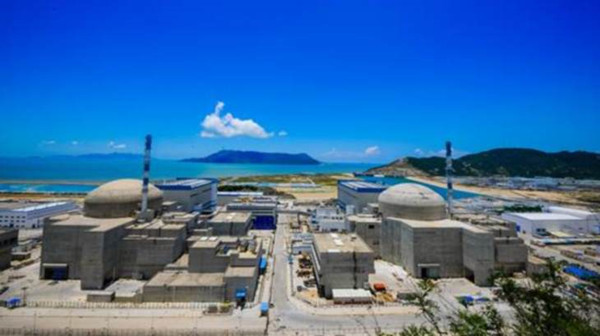China's nuclear electricity generation rose by 18.1% last year, to 348.13 TWh, which is up from 286.15 TWh in 2018, figures from China's National Energy Administration show. Nuclear's share of total electricity production was 4.88% last year, up from 4.22%. According to the National Development and Reform Commission, China aims to have 200 GWe of nuclear generating capacity in place by 2035, out of a total generating capacity of 2600 GWe. Under those plans, thermal power plant capacity is expected to increase from 1190.6 GWe in 2019 to 1300 GWe in 2035.

Unit 2 of the Taishan plant in China's Guangdong province entered commercial operation in September 2019 (Image: China General Nuclear)
Its nuclear generating capacity increased by 9.1% year on year, from 44.64 GWe to 48.74 GWe, which followed an 18% increase in capacity between 2017 and 2018. Two power reactors were connected to China's grid in 2019 - Yangjiang unit 6 and Taishan unit 2. Total electricity generating capacity grew 5.8% in 2019, to 2010.7 GWe, from 1899.0 GWe in 2018.
There are a further 12 reactors under construction in China, with a combined capacity of 12,244 MWe. Another 42 units are planned, which will add 48,660 MWe of capacity, with more reactors proposed.
China's total electricity generation totalled 7142.2 TWh in 2019, a 5.2% increase from the 6791.42 TWh produced in 2018. The majority of its electricity is still produced by thermal power plants (predominantly from coal), which accounted for 72.3% of output last year. Hydro, wind and solar provided 16.1%, 5.0% and 1.6%, respectively.